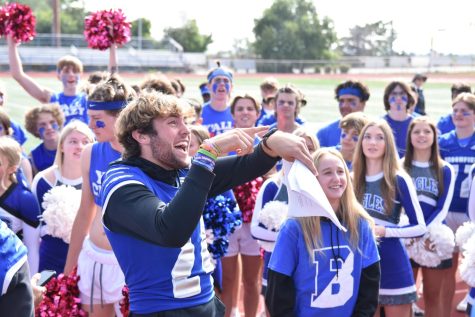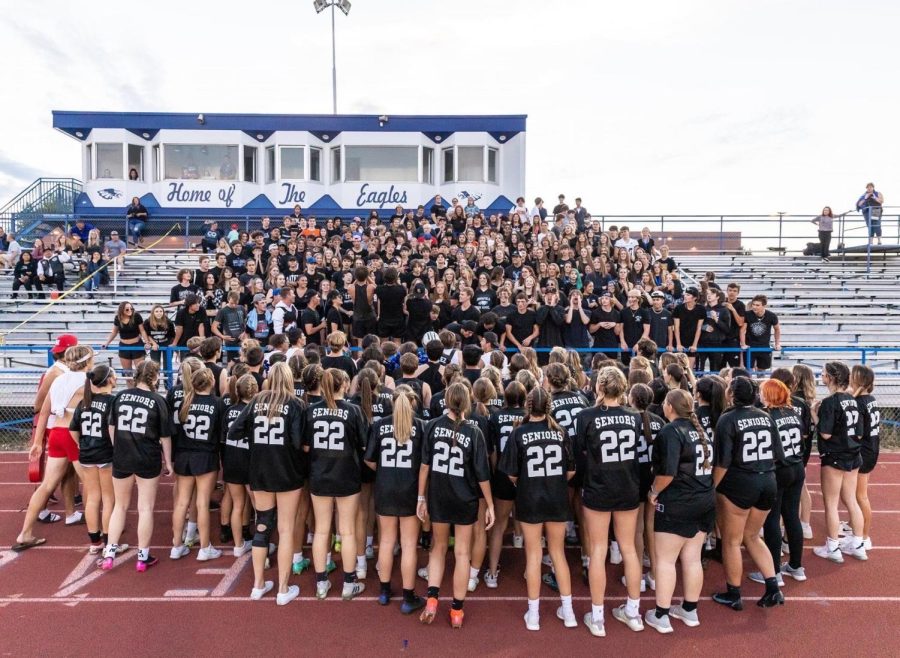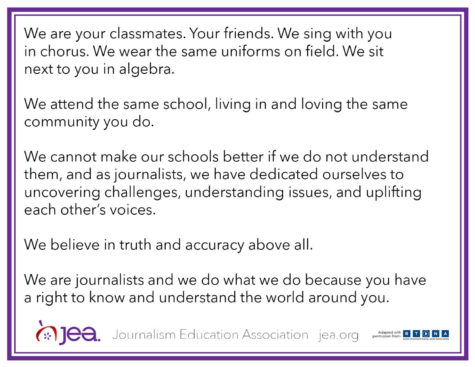Cancel Llabtoof?!
Controversy surrounds this nearly 100 year-old tradition, but is it even about the girls?
Seniors from the class of ’22 get excited for the llabtoof game. Despite the tradition of the event, the heavily favored seniors actually lost to the junior class.
September 26, 2022
Calm your pants: It’s not cancelled…
History:
Llabtoof (football spelled backwards), better known as Powder Puff, is a tradition schools across America look forward to every fall.
How did this homecoming tradition come about?
According to Brian Barker, the Director of Marketing at Western State Colorado University, the first Powder Puff game occurred in 1931.
Even though there is photo evidence of this first Powder Puff game, the first officially documented game was played on October 20, 1945.
Just a month after the official end of WWII, Eastern State College in South Dakota decided to begin homecoming football games again. But there was a problem…
With much of the male population drafted, only three players signed up for the games. The homecoming committee of Eastern State began looking for other options.
A debate arose if women should play. After dealing with the backlash and disputes, the committee finally approved women to participate.
With 230 women signed up, the game ended up being a great success, according to The Eastern Newspaper.
Since then, Powder Puff games have become a beloved tradition for schools around the country.
Controversy:
Although the game is fun, it’s often the source of debate.
Why? Some suggest the event mocks females’ athletic ability.
According to the website, Denebola, in an article “Powder Puff Ignites Controversy Over Gender Roles,” the game has been called out for “demeaning women’s athletic ability.”
However, the Spirit Boys have been disputed for an entirely different and possibly opposite issue: over sexulaizing cheerleaders.
With their cropped shirts and short-shorts, the spirit boys’ outfits create a potentially demeaning impression.
According to cheerleader Amory Mun (‘24), “We aren’t even allowed to wear crop tops.”
The Spirit Boys’ outfits make the cheerleaders out to be something they’re not: showy and overly revealing.
Some argue that it’s the boys that are the problem. In this day and age, women are typically respected for their athletic talent — rarely is it a source of humor.
On the other hand, the entire purpose of the Spirit Boys is to be funny, but what makes it funny?
Of course, it’s partly due to the boys making jokes of themselves dancing around in an uncoordinated routine, but there’s more to the picture.
Mocking what cheerleaders wear might be part of the issue. But do we need to take into account how the Spirit Boys mock the cheerleaders’ skill? Afterall, CHSAA recognizes cheerleading as a competitive sport just as it does football.
With this in mind most of the student body seems pretty unconcerned.
“Neither is really offensive. In Llabtoof they’re participating on their own free will,” said Peter Darrow (‘24), one of this year’s Spirit Boys. “We’re just embarrassing ourselves, which is funny.”
 Like Darrow, most students are not bothered by the tradition, although if they had to choose which they considered more offensive to women, many picked Llabtoof.
Like Darrow, most students are not bothered by the tradition, although if they had to choose which they considered more offensive to women, many picked Llabtoof.
“I would say Llabtoof is worse because if a girl is bad at football, then we get laughed at and we just look stupid. But if a boy is bad at cheer, then it’s really funny and not frowned upon,” said Elle Howard (‘24).
The common theme appeared that nearly everyone respects girls’ athletic ability. If anything, the girls are more worried about not performing well and winning the game than being mocked.
Overall students are more supportive of Llabtoof and Spirit Boys than against.
Faustina Phan (‘24), a student who will participate in llabtoof as a fan, said, “It’s a tradition people like and everyone enjoys watching, and they even want to participate.”






